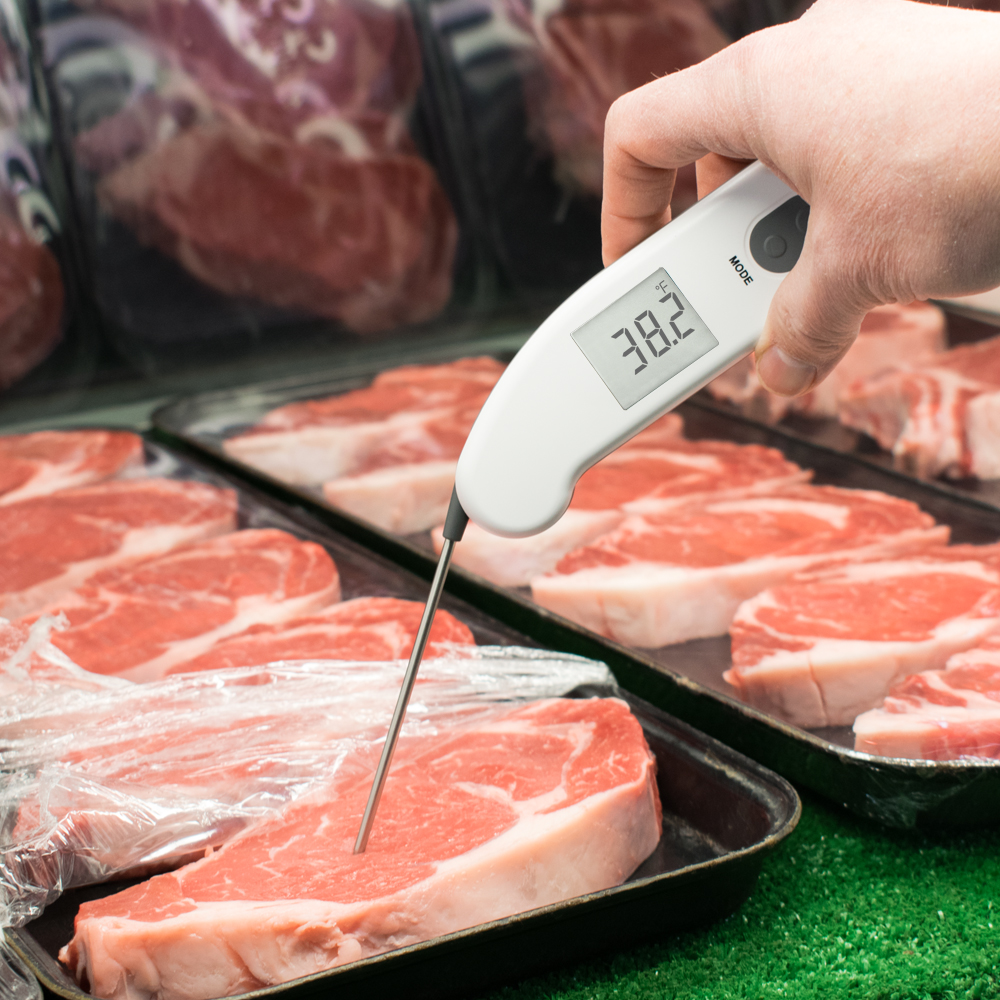Do your managers and food staff know what to do during a power outage at your food establishment? Whether it is hurricane season, a bad snow storm, or a downed power line, make sure your food establishment is prepared to handle an emergency. The number one goal is to keep the food and your patrons safe! Here are some tips and resources on how to do that.
- Have a plan ready for your staff to follow during a power outage
- Make a kit (just like you would at home) with flashlights, batteries, water, and essentials
- Have food thermometers as these are essential to check the maintenance of proper temperatures in your food stock
- Create a list of important numbers (owner, managers, utility and power companies)
- Train your staff regularly on what to do during an emergency
- Assist any patrons or guests safely out of the restaurant if the outage is expected to last longer than a few minutes
- Cease all cooking operations and discard undercooked foods
- Do not place hot food in refrigerator as it will rapidly raise the internal temperature
- Use ice or ice baths to rapidly cool small batches of hot food
- Continue to practice good food and personal hygiene. If available, continue to use water and sanitizer to clean surfaces, utensils, and dishes. Wash hands often. If running water is not available, use hand sanitizer.
Pay special attention to the potentially hazardous foods. Potentially hazardous foods include high protein foods (e.g., meat, eggs, dairy) and cooked vegetables that support the rapid growth of disease causing bacteria. Foodborne illnesses can be caused by bacteria that can multiply rapidly in food when the food is held in the temperature danger zone (41°F–140°F).
- Make sure all foods in your establishment stay out of the danger zone of 41°F–140°F
- Refrigerator: Keep doors closed as much as possible. Discard any potentially hazardous foods that have been above 41°F for greater than four hours.
- Freezer: Keep doors closed. Bunch items together to keep temperatures down. Place ice or dry ice in the freezer for prolonged periods of outage. Maintain all foods frozen solid (below 0°F). Discard any completely thawed food items.
- Hot Holding: It is best to throw away any foods that need hot holding after they drop below 140°F. You can refrigerate or freeze these items, but you risk harming other food due to the fridge or freezer dropping their temperatures.
- Look at other options to store food if the outage is expected to last, such as refrigerated trucks. Never take food to personal homes for storage and freezing.

The following is a list of potentially hazardous foods that should be discarded after four hours above 41°F, and foods that can be kept safely at any temperature but may have their quality impacted.
Discard:
- Meat, poultry, fish, eggs, and egg substitutes—raw or cooked
- Milk, cream, and soft cheese
- Casseroles, stews, or soups
- Lunch meats and hot dogs
- Creamy-based foods made on-site
- Custard, chiffon, pumpkin, or cheese pies
- Cream-filled pastries
- Cookie dough made with eggs
- Whipped butter
- Cut melons
- Cooked vegetables
Keep:
- Butter or margarine
- Hard and processed cheeses
- Fresh uncut fruits and vegetables
- Dried fruits and coconut
- Opened jars of vinegar-based salad dressings, jelly, relish, taco sauce, barbecue sauce, mustard, ketchup, olives, and peanut butter
- Fruit juices
- Fresh herbs and spices
- Fruit pies, breads, rolls, and muffins
- Cakes, except cream cheese frosted or cream-filled
- Flour and nuts
- Check all foods with a food thermometer to ensure they are out of the temperature danger zone and still safe to serve consumers—immediately discard any items that are not safe!
- Separate refrigerated and freezer items to assist in the rapid cooling of the products still safe
- Ensure there is no other damage to the food establishment and all powered utilities are working
- Call the Arlington County Public Health Division at 703–228–7400. Your restaurant will likely need to be checked by an Environmental Health Specialist before reopening. This means a brief visit to ensure that your establishment is safe and ready to reopen.